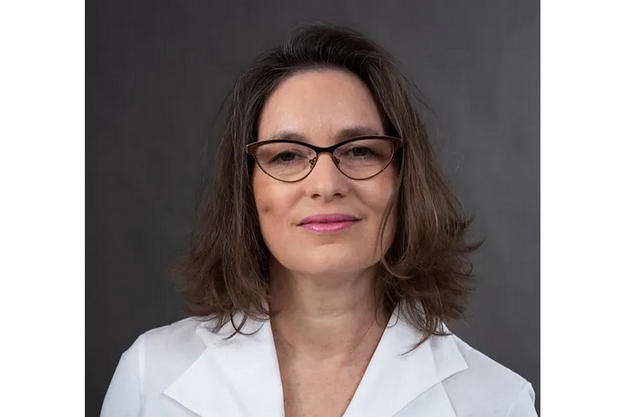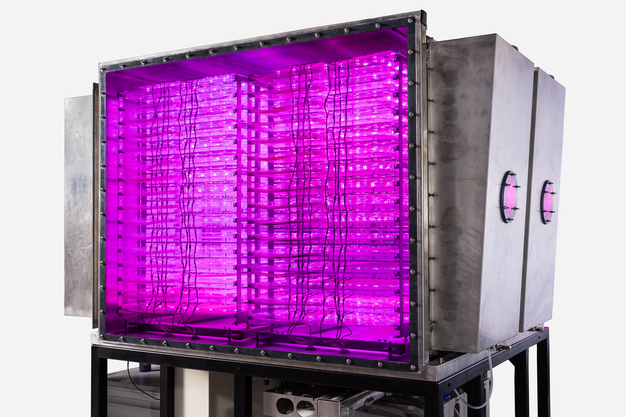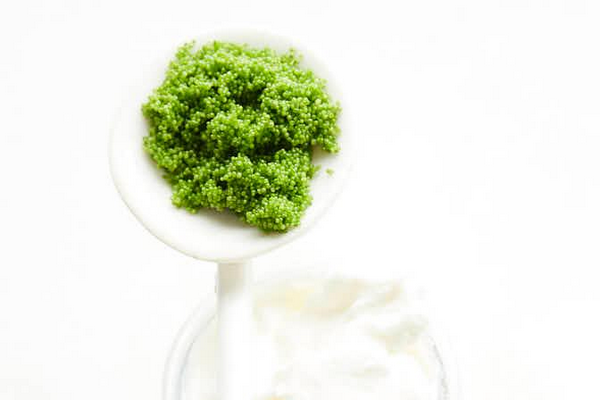"The problem is not that people aren't willing to eat leafy greens, but that it is difficult to produce them in an efficient, predictable way that reduces waste and emissions," says Dr. Tsipi Shoham, co-founder and CEO at GreenOnyx.
GreenOnyx is a vertical farming company based in Tel Aviv, Israel and specializes in both the production of a freshwater lentil superfood and deep-tech modular farming solutions. Coming from a background in the medical field specializing in cellular biology and cancer research, Tsipi discovered the significant health benefits associated with vegetable consumption, and so she launched GreenOnyx in 2013 aiming to transform the landscape of fresh food production, distribution, and consumption globally. To do this, she sought to answer two main questions: what should be grown and how should it be grown?

Tsipi Shoham
The 'how'
Tackling the "how" side of the equation boiled down to creating a fully autonomous solution that reduces waste levels down to 6%-8%. GreenOnyx designed an end-to-end sterile compact, modular farm that offers guaranteed yield efficiency and supply chain from seeding in the farm to the consumer's plate. Every stage of cultivation, from seeding to harvesting and packaging, is fully automated, ensuring precision and efficiency throughout the process.
Its compact form allows for easier integration into existing buildings and other spaces close to the consumer base, eliminating losses during shorter seasons and shrinking the farm's footprint. The systems enable year-round growing, resulting in up to 100 times more production per square yard compared to conventional methods. The farm's footprint is further shrunk by its high land, water and energy efficiency as well as the elimination of chemicals such as pesticides, antibiotics and other toxins.
"We built our farm in the middle of Tel Aviv, on the fifth floor of an industrial building right next to our largest customer, so there is practically no distance to travel. With our system, we have created a monoculture, sterile environment to produce a highly predictable and nutritious fresh crop, that is easy to consume as processed foods, and with up to 6 weeks of shelf life," explains Ben Kidron, Chief Revenue Officer at GreenOnyx.

The 'what'
"Consumers don't know what the planet has to offer, with 99.9% of edible food sources currently untapped. When digging into this 99.9%, we came across duckweed which is the world's smallest vegetable and can be produced at a higher density than any other crop we've seen in vertical farming," says Tsipi.
While many crops in vertical farms require roughly 60 cm per layer for the plants, lights, etc., water lentil trays can be stacked with 6 cm between each, thus increasing the productive surface tenfold. Also, duckweed biomass doubles within 48 hours whereas lettuce requires 4-5 weeks to grow. Overall, this translates to more production with less water, space, and energy. Further, water lentils are harvested alive with every grain a whole raw living plant which, when kept in the fridge in a sterile package, has a shelf life of six weeks.
"Water lentils are highly nutritious and very easy to consume. They absorb the taste of the surrounding dishes, somewhat like rice. It looks like green caviar and can be added to any dish without changing the taste at all," explains Tsipi. "The texture is sparkly and alive. It looks like processed food but is much more healthy - potentially the craziest innovation I know of."

Wanna Greens
GreenOnyx grows and packs roughly 40 tons of water lentils per year in its 1,400-square-meter facility. The product, called Wanna Greens ®, is marketed with a three-tiered approach, the first of which is restaurants. GreenOnyx's water lentils are being served in leading restaurants in Israel, France and the United States, for which they are now initiating the first US-based GreenOnyx farm. GreenOnyx even sent water lentils to space in collaboration with NASA – the small vegetable's nutritional value and closed cultivation methods were able to provide astronauts with much-needed nutrients during long missions and for future space habitats. The second layer of sales was direct-to-consumers, with subscriptions allowing consumers to easily access Wanna Greens regularly. The last layer is B2B, with sales to retail and food service channels. With GreenOnyx modular farm, vertical farm partners can buy a farm, and distribute the product through their delivery system and with a white label.
"We do have a branding strategy that we want to implement later on, but we want to make sure that retailers and consumers are comfortable with the product. We want to introduce it to the masses," says Ben.
"We have a great future ahead of us with a wide horizon of what we can do, even beyond fresh duckweed. With this completely sterile production system, we're excited to see what else we can grow and bring to consumers," says Tsipi.
 For more information:
For more information:
GreenOnyx
Tsipi Shoham, CEO and Co-Founder
Ben Kidron, CRO
[email protected]
www.greenonyx.ag
